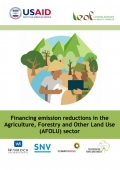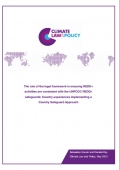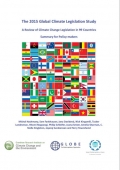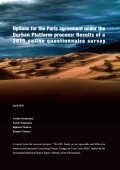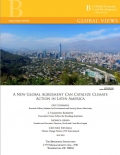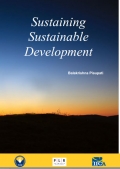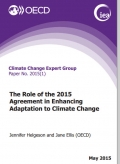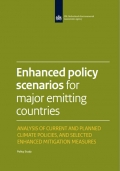Publication
To ensure economic expansion while also contributing to global efforts to combat climate change, many developing countries are adopting Low Emission Development Strategies (LEDS) among other initiatives. Because the agriculture, forestry and land use (AFOLU) sectors are key economic...
The 2015 Global Climate Legislation Study, covering 98 countries plus the European Union which are together responsible for 93 per cent of global emissions, will be presented to delegates tomorrow (2 June) in Bonn, Germany, where the latest round of United Nations climate change...
The 17th Conference of the Parties (COP17) to the United Nations Framework Convention on Climate Change (UNFCCC) held in Durban, South Africa, in November–December 2011 reached a decision known as the Durban Platform. It launched “a new process to develop a protocol, another legal...
This paper aims to better understand the link between Latin American countries’ proposed climate actions before 2020 and their post-2020 targets under a Paris agreement. We look at why Latin American climate policies and pledges merit attention, and review how Latin American nations...


